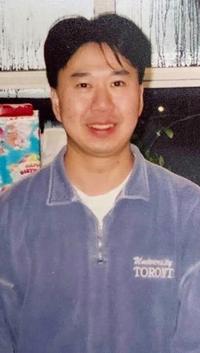şÚÁĎłÔąĎÍř visited Toronto's Parkdale Queen West Community Health Centre supervised consumption site on a recent Friday before it shuttered its doors on April 1.
The site is one of nine that have agreed to transition to the province's new abstinence-based model – homelessness and addiction recovery treatment hubs, or HART hubs.
Here are some stories and scenes from the site.
___
BRENDAN FITZPATRICK
Client, Parkdale Queen West Community Health Centre
“Safe injection sites get a bad rap. It's unfortunate [because] it's honestly changed my life. If it wasn't for a safe injection site, I don't think I'd be clean today. They are here for safe use and for harm reduction and also to give you the resources if you want to change your life ... You can't just do it on your own. You can try and it might work for a bit, but it's really hard. I think these places need to be open [for people to] really get the opportunity to change their lives like I did. It's important.”
“Drug users were people that [at] one point the average person wouldn't think twice about talking to or interacting with. They have good hearts. A lot of these people have been through the mud and back, they've been through the trenches. You have to really experience the worst to understand what it is to be the best.”
___
JOSH MCLEAN
Client, Parkdale Queen West Community Health Centre
“I feel safe [here]. They save lives”
___
MIKE ERICKSON
Client, Parkdale Queen West Community Health Centre
"[The staff] saved my life. I haven't gone down in 40 years. And I went down about three weeks ago for the first time in 40 years ... that tells me that strength of the dope ... If I was home, then I wouldn't necessarily I wouldn't have made it ... I can't thank them enough.”
"I'm a daily user at the site. The staff are very pleasant ... they take you in no matter who you are, they don't judge. And they make you feel at ease. You have a camaraderie around these people. We're all family, friends.”
“It’s just common sense to keep them [the sites] open. At least it's contained here. We're going to get bodies in alleys. We're going to get bodies in parks.”
___
MONIKA MONACO
Overdose Prevention Support Worker, Parkdale Queen West Community Health Centre
“There's a whole bunch of clients that I'm really concerned about because they are really high risk in a lot of different areas, but specifically like overdoses ... these are clients that come in every single day, who overdose just about every single day, and we reverse it. We safety plan with them when we're in these spaces, but that doesn't guarantee those plans can be followed through outside based off of wherever they are.”
“It's a really scary thing because it is going to kind of push more people to have to use in unseen places, and no one's going to be there for them.”
“I'm a huge, huge advocate for our clients and knowing that even with the privilege that I have, I can't do anything, is really scary. I feel as if I haven't done enough. Because things are closing I'll do my best to make sure [people] are good and [people] stay alive and I'll be able to see them in six months. But the reality is that there's a handful that I know that I won't see in six months from now.”
___
PATRICK MURRAYÂ
Overdose Prevention Support Worker, Parkdale Queen West Community Health Centre
On the closure of the safe consumption service:Â
“Everyone's scared and sad ... It’s hard. We have a lot of regulars ... a lot of people come in ... daily, weekly. Our people. You just get to know them. It's so heartbreaking ... because someone is losing something that has kept them alive.”
___
This report by şÚÁĎłÔąĎÍř was first published April 11, 2025.















































